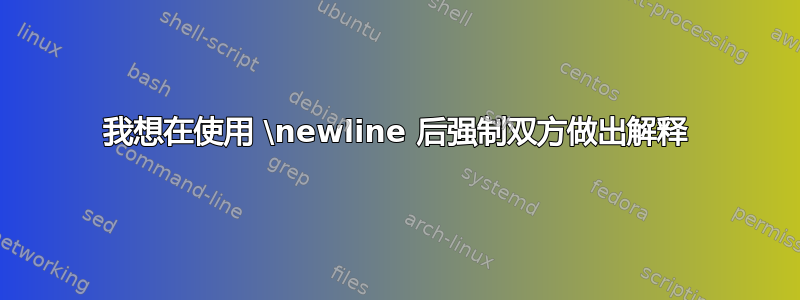
\documentclass[11pt,a4paper]{article}
\usepackage[cp1250]{inputenc}
\begin{document}
\noindent In year 1000 somebody wrote something\footnote{\emph{something}} because he
wanted to. Some thought he is clever, but some said no. Yet 100 years later
somebody\footnote{\emph{something}}\footnote{\emph{something}}\newline and somebody
else\footnote{\emph{something}} did something. It means that is something important.
\end{document}
这就是例子。我不能在行尾使用“and”,但使用\newline前一行后看起来很难看。有什么解决办法吗?
请注意,我无法删除\noindent,因为它是必需的。
答案1
\documentclass[11pt,a4paper]{article}
\usepackage[cp1250]{inputenc}
\begin{document}
\noindent In year 1000 somebody wrote something\footnote{\emph{something}} because he
wanted to. Some thought he is clever, but some said no. Yet 100 years later
somebody\footnote{\emph{something}}\footnote{\emph{something}} and~somebody
else\footnote{\emph{something}} did something. It means that is something important.
\end{document}
人为地将“and”的一部分变成下一个单词的一部分,并添加一个硬空格~。这将防止“and”一词后出现换行。
答案2
除了使用 之外\newline,您还可以调整破坏惩罚。
\documentclass[11pt,a4paper]{article}
\usepackage[cp1250]{inputenc}
\begin{document}
\noindent In year 1000 somebody wrote
something\footnote{\emph{something}} because he wanted to. Some
thought he is clever, but some said no. Yet 100 years later
somebody\footnote{\emph{something}}\footnote{\emph{something}}\penalty0
and somebody else\footnote{\emph{something}} did something. It means
that is something important.
\end{document}


